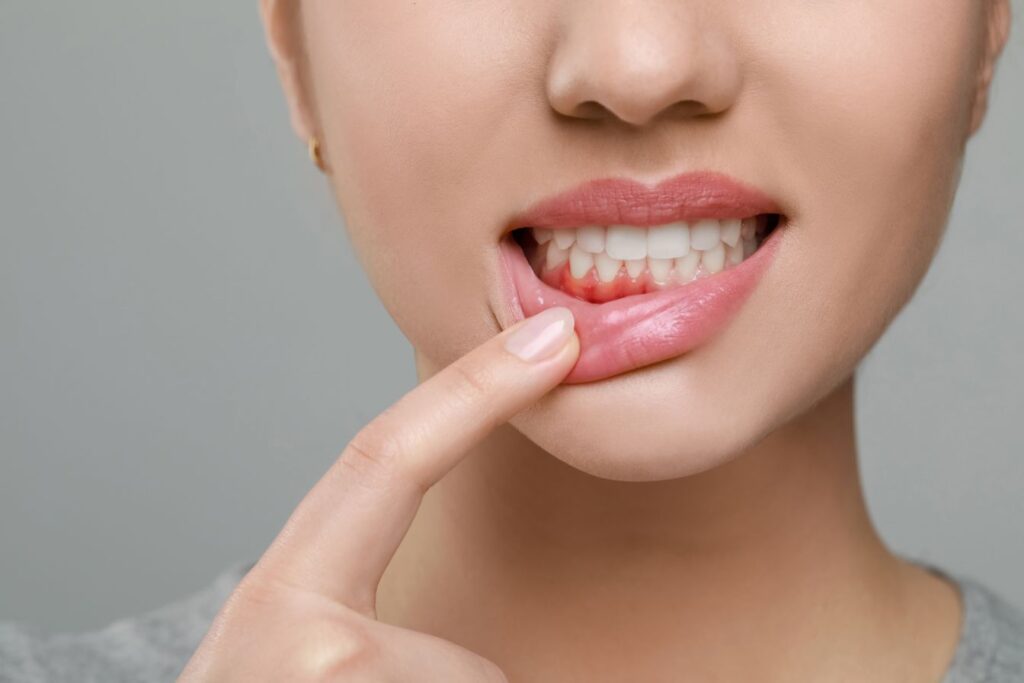
Gum disease is one of the most common oral health problems in the United States, with nearly half of all people over the age of 30 having some stage of the condition. As the population ages, the numbers get higher, with over 70 percent of those over the age of 65 suffering from this bacterial infection! But can it be cured? Here’s how your dentist can help you stop or reverse the signs of periodontal disease, and why doing this is so important for your oral and overall health!
What is Gum Disease?
Gum disease (also known as periodontal disease) is a bacterial infection of the gums that worsens over time in stages. The first stage is gingivitis, which causes mild soreness, minor bleeding when brushing or flossing, redness, and swelling. The good news is that gingivitis is very treatable and typically clears up with more diligent focus on your oral health such as brushing and flossing more frequently.
If left untreated, gingivitis can grow into another stage known as periodontitis. Periodontitis can cause permanent damage to the bone and gum tissue, but it can be stopped with the help of your dentist. This stage can cause a variety of oral health problems including receding gums, bad breath, changes in your bite, loose teeth or tooth loss, painful chewing, and red swollen gums.
How does Gum Disease Affect the Body?
In addition to the damage gum disease may cause your teeth and gums, it can also contribute to other serious problems throughout the entire body, including:
- Diabetes: patients with uncontrolled blood sugar levels may have higher glucose levels in their saliva, which can increase the prevalence of the oral bacteria that causes gum disease. Furthermore, untreated periodontal infections can raise blood sugar, making it harder to manage diabetes symptoms.
- Heart Disease: Inflammation from gum disease can increase your risk of heart disease and high blood pressure. When inflammation is present the cardiovascular system will increase the levels of fats and cholesterol in your bloodstream, which can form plaques in your arteries, causing atherosclerosis. This condition causes the blood vessels to become stiff and narrow and could potentially slow or block your blood flow.
- Irritable Bowel Disease (IBD): Researchers believe that inflammation in your mouth could lead to worsening of IBD and other gastrointestinal conditions.
- COVID-19: Studies have shown that inflammation in the mouth from severe periodontitis could lead to more aggressive COVID-19 infections and increase your risk of complications from the illness.
- Mental health: When you are missing teeth due to periodontal disease, it can negatively impact your mental health. This can cause you to avoid social interactions, increasing feelings of sadness and isolation which can worsen depression and anxiety.
Can My Dentist Cure Gum Disease?
Unfortunately, some damage caused by gum disease is irreversible. However, there are many treatments that can stop it from progressing and restore much of the damage it has caused in the past. Your dentist can evaluate your teeth and gums and develop a treatment plan that will help eliminate bacteria, repair the gums, and help stop the damage from continuing. The exact treatment will depend on the severity of the condition, and the specific symptoms you are experiencing.
How Can I Prevent Gum Disease?
Preventing gum disease is easier than you might think. First, it is extremely important to have a solid oral hygiene routine, which includes brushing twice a day and flossing daily. Furthermore, be sure to visit your dentist every six months for your regular check-up and cleaning appointments. These can help keep your mouth free of excess bacteria and allow your dental team to keep an eye on your gums and help slow or stop the progression of periodontal disease. Finally, be sure to avoid bad oral habits like smoking or excessive alcohol consumption.
Remember, periodontal disease is a dangerous condition of the gums that can have a variety of negative consequences that affect your entire body. The good news is that with the help of your dentist, you can treat and protect your mouth from the dangerous damage it causes.
About Dr. Rauchberg
Dr. Alan Rauchberg earned his dental degree from the Temple University School of Dentistry, and today he takes an astonishing 100 hours of continuing education courses each year from prestigious institutions such as Spear Institute, Dawson Academy, and the Pankey Institute. He is a member of the American Dental Association, New Jersey Dental Association, Academy of General Dentistry, and American Academy of Dental Practice. To schedule an appointment at Rauchberg Dental Group for gum disease treatment, please visit our website or call us today at 973-718-9887.
